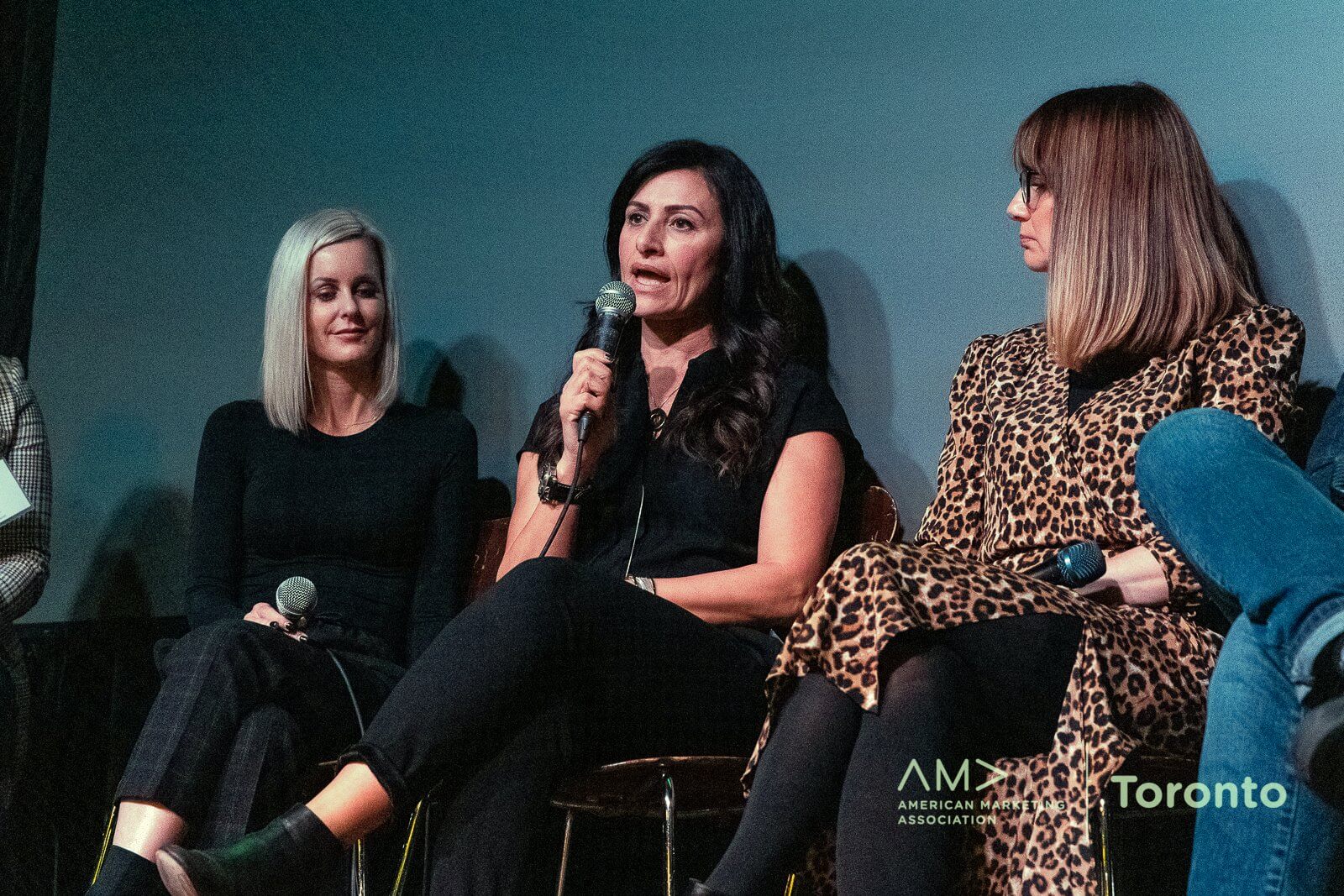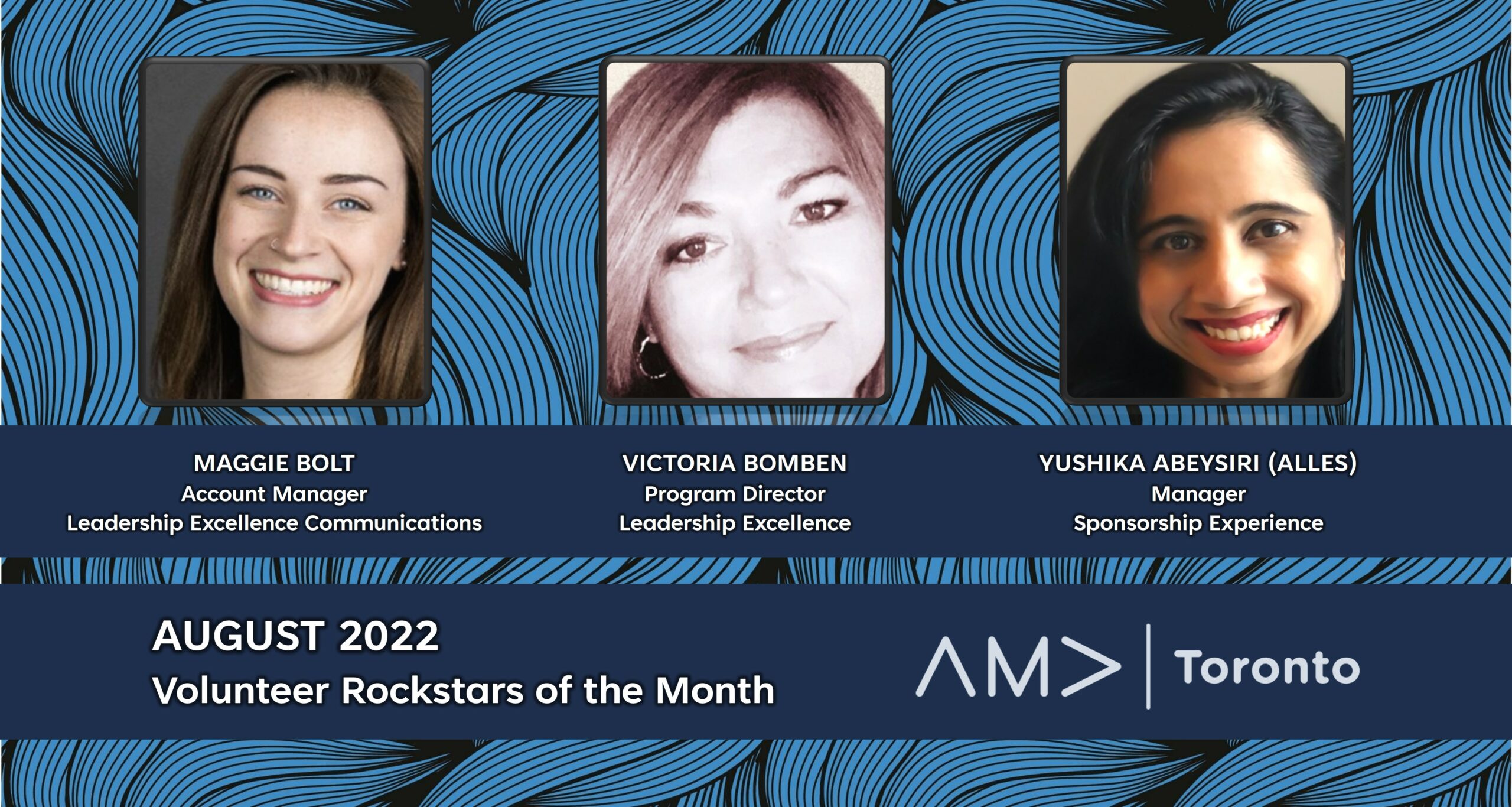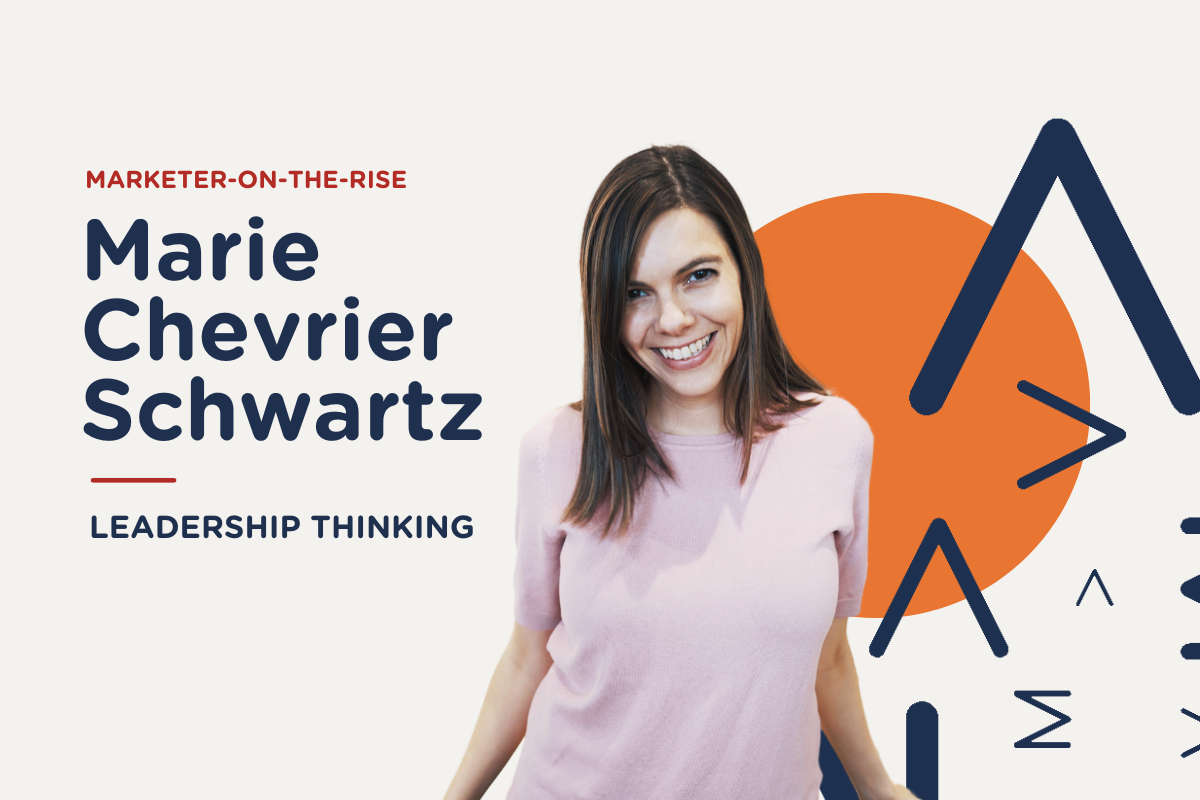AMA Toronto’s annual look at major trends, challenges, and opportunities facing marketers in the year ahead was held on December 9th before a packed house at Revival Bar in Toronto’s west end.
This look ahead to 2020 drew on the insight of leaders in creative, media, PR, technology, and strategy to get at the heart of what is happening in the agency world.
Setting the Stage for Digital Transformation
Rosane K. Giovis, Partner, Digital Strategy & iX, IBM iX, spoke first for some context-setting about digital transformation. She talked about how IBM—a company with more than 100 years of history—decided to re-emphasize design thinking a decade ago, leading to the creation of IBM’s digital agency, IBM iX. Incorporating designers, strategists, technologists, and creatives, the staff of IBM iX consider themselves business designers working at the intersection of strategy, technology and creativity.
She highlighted the shift she’s seeing from a tactical approach to an experiential approach. Her research shows that 65% of CEOs and 68% of CMO’s believe that the business landscape will shift from product-based to experience-based. 80% of customers report that the brand experience is as important as the product or service they are looking to purchase. And 86% of customers say they are willing to pay more for a better experience.
Technology is driving this new experience revolution. Technology is a differentiator and enabler and can accelerate customer experiences. It allows agencies and enterprises to be far more creative than was possible previously and to build truly unique experiences that enable new and different connections with customers.
“What I want you to take away,” she said, “is the amount of creativity going into rethinking and redesigning customer experiences using technology. Don’t be afraid of technology — it is an enabler. Think about the ways you can start leveraging technology as part of redefining brands and marketing your products differently.”
“The crazy, amazing world of media in 2019”
Alexandra Panousis, President Advertising and Media, CEO, Havas Canada, presented next, saying, “At the end of 2019 people are looking for meaning. We’ve seen a great deal of change in protests from Hong Kong to Canada. We are beginning to see brands holding accountable to a higher standard.”
Her big take away was that in 2019 there was no more playbook and highlighted a series of examples showing the kind of rapid transformation the industry is undergoing.
Increasingly people are giving up privacy for value. She used the example of FaceApp, which digitally ages a photo of you, but with the trade-off (which most people didn’t realize when they downloaded the app), that by using the app you agree to give the company rights to all of your photos in perpetuity.
Panousis cited the fact that more creative work was being brought in-house in 2019, along with calls for the end of the creative AOR, all of which put stress on agencies, bringing the industry to a pivot point.
We are likewise at an inflection point as a society with our technology, she argued, as we begin to wonder whether if what is possible might not be better or right. “One of the themes you find across the social media of leaders in Silicon Valley is that they don’t want their kids online. They limit their screen time.” Panousis urged agencies to take a step back from the myriad possibilities that technology offers and ask, “Is this really adding value for our clients?”
Trust and breach of trust was a major theme in 2019. Panousis pointed out the rise of deep fake videos, as well as new questions about whether some of the largest companies in the digital technology space are valued realistically.
In that vein, the price of smart home speakers has dropped radically, leading to a massive uptake in podcasts and audiobooks. But the ubiquity of smart speakers is leading to ever more questions about privacy, as these devices are always on and always listening. An editorial in PC Magazine in 2019 urged readers to keep their houses as ‘dumb’ as possible.
“2020 will be the year of creativity”
“2020 will be the year of creativity,” declared Nancy Crimi-Lamanna, Chief Creative Officer, FCB Toronto, who took the stage next. “When you unleash creativity across the consumer journey, it is an economic multiplier, for brands and for business. And there’s never been more proof of that than there is today.”
She highlighted 20 years of data that reveal creatively awarded campaigns are 11 times more efficient at driving market share growth. The most highly awarded campaigns are 16 times more likely to drive growth. And 15 years of winners from Cannes reveal that the advertisers of the year there outperform the S&P 500 by a factor of 3.5.
The more creative campaigns are also more highly memorable, she pointed out. When you drive emotion through humour, celebrities, or some sort of fantasy, those campaigns are far more memorable than campaigns that are price led. Winners on the Cannes stage also have higher levels of organic growth.
Crimi-Lamanna outlined three takeaways from this focus on creativity:
• Awards matter. They matter for the right reason, which is that they deliver better business results. If you are winning awards, you are going to be the agency that CMO’s want to talk to.
• Don’t be in the business of having good meetings, be in the business of delivering exceptional creative. Break rules, do things that feel uncomfortable. We need to have genuine conversations with our clients and make them uncomfortable. Otherwise, they could hire anyone to do the work.
• Creativity should be channel-agnostic. Start with the idea first, and not the channel. That way, you don’t cut yourself off from unique, innovative solutions that you might miss if you are channel focused.
A Top Ten for 2020
Jack Perone, Chief Strategy Officer, Mass Minority, then outlined “ten pragmatic, reasonable things you should be focused on in 2020.”
• How you behave as a brand is as important as what you stand for. You will be celebrated for authenticity and pilloried for lip service.
• Reject ‘or’ and embrace ‘and.’ In today’s technology-driven world, we’re able to deliver messages to unique audiences in powerful ways, so you can do more. It’s no longer picking two of good, fast, or cheap. Agencies of the future need to deliver on all three.
• Embrace 9:16:9 thinking. As you’re creating content, actively think about how people will consume on smartphones, and actively frame for it. If it’s not in the frame on a smartphone people will miss your message.
• Flip the funnel. Start backwards by focusing on the behaviour you want to impact and move backward through the consumer journey to define the things that solve your business problem.
• Power of two. 77% of people are on a digital device while they’re watching television. Their behaviour? They’re looking up products they’re seeing on TV, sharing content—their digital behaviour is inspired by their traditional thinking
• Be brave. Don’t let an agency ask you to take risks. Make them convince you that risky ideas are the right ideas.
• F words. Fame, fluency and feeling. The more well-known a brand is, the better it does in the marketplace. Brands that have simple associations that are well understood and simply defined do better in the market. Brands that trigger an emotional response have a greater share.
• Think both longer and shorter. Creative effectiveness in the industry is in decline. The most awarded campaigns produce fewer business results than they used to. This is directly correlated to the rise of short-term performance marketing growth. A focus on the short-term lessens your overall impact in the market, so ensure that you’re also focusing on long term brand building.
• Thinking during, not ‘before’ and ‘after.’ Actively adapt the idea in the marketplace as the campaign is progressing. Don’t rely on pre- or post-testing. Beforehand, it doesn’t work, and afterward, you’ve already spent their money.
• Be nice. When you’re nice, you have more fun. And the facts show us that when you have more fun, you have better ideas.
“It’s 120% speed, 80% assurance.”
The final speaker of the evening was Krista Webster, President & CEO, Veritas Communications, who spoke about the disruption the agency world is undergoing.
“Speed to market in a discipline already used to speed is only increasing,” she said.
Digital transformation is creatively-led earned, and we need to look at how it’s resonating. Many CMOs are bonused on how much earned they get, and the campaign has nothing to do with media relations. Webster argued that the term ‘agility’ is overused and that we need to switch from agility to fluidity.
She encouraged company-wide experimentation over testing. Experimentation is a culture, Webster emphasized, so it needs to be infused into the culture of both agency and client. Testing is important, she agreed, but it is short-term. “Experimentation is about seeing what will really stick long-term.”
While there were many questions in 2019 about the value of influencers, Webster argued that influencers are the most effective form of advertising but should be complementary, not competitive with other kinds of marketing. It’s not about an influencer, she said, but what you’re doing with that influencer. Are you looking at how to add value through paid when something is resonating organically? Her testing has shown that it can be eight times as effective as organic alone.
“Trust over everything,” she emphasized. Highlighting research by Google, she outlined the concept of ‘psychological security’ amongst employees. “If you feel comfortable as a team and genuinely trust one another, creativity will rise, and you’ll have better, faster outputs.”
* * * * * *
Join us January 28th and 29th for the 2020 AMA Virtual Conference: The Year Ahead to learn how you can be a catalyst for navigating change. Our keynote speakers will teach you how to catalyse internal and inter-personal change, give you a preview of the what the 2020 U.S. election means for marketers, and highlight emerging technology, regulations, and industry trends.
View the full agenda online and register now.
This article was brought to you through the partnership between the AMA Toronto and HeadStart Copywriting.




